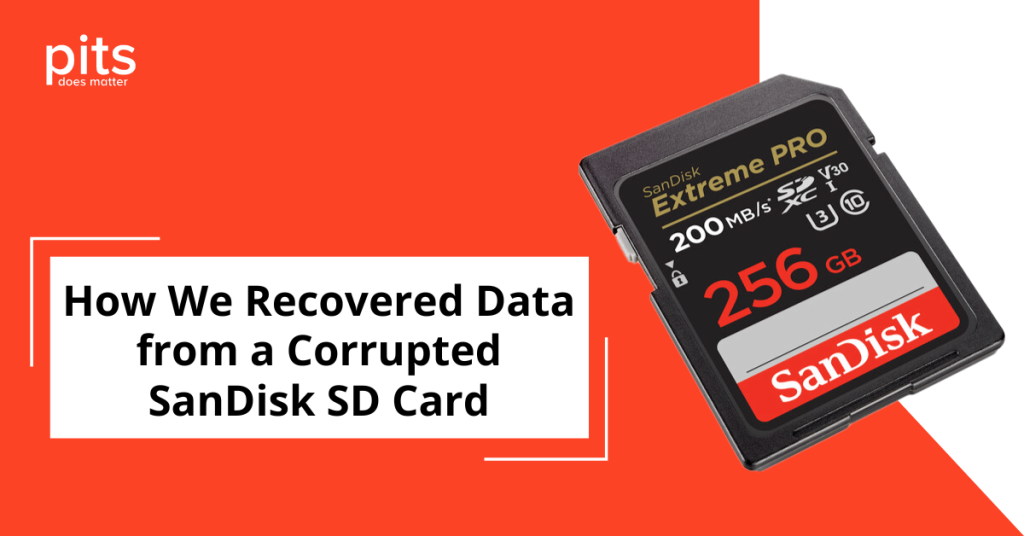Is your external hard drive not being recognised? This is a common issue for many computer users in the UK. There are several reasons why your external hard drive might need to be recognised. One of the most frequent causes is a loose or disconnected cable. If the data or power cable has come unplugged, the hard drive won’t communicate with the computer properly.
Another potential reason is a corrupted file system, which can prevent the operating system from accessing the drive. Understanding these potential causes can help you diagnose and address the issue more effectively. In this blog post, we’ll explore the common causes of data loss and their possible solutions.
Why Isn't My Computer Recognising the External Hard Drive?
If your computer is not recognising the external hard drive, there are several potential causes to consider. It could be due to a loose connection, an outdated driver, or even a malfunctioning hard drive. Here are a few common reasons why your computer may not recognise your hard drive:

- Loose or disconnected cables: If the data or power cable connecting the external hard drive to the computer loosens or unplugs, it disrupts communication between the hard drive and the computer.
- Corrupted file system: Your hard drive’s file system can become corrupted due to improper shutdowns, hardware failures, or malware infections. This corruption may prevent your operating system from recognising the drive.
- Malfunctioning hard drive: A malfunctioning hard drive can often cause problems stemming from physical damage, mechanical failures, or electronic malfunctions within the drive.
How Can I Fix an Unrecognised External Hard Drive?
If your computer is not recognising the hard drive, there are a few steps you can take to try and fix the issue. Here are several possible solutions to consider:
- Check cable connections: Ensure data and power cables are securely connected to both the external hard drive and the computer.
- Run a diagnostic test: Utilise the hard drive’s diagnostic software to detect potential issues.
- Update drivers: Use Device Manager on Windows to check for and install any driver updates.
- Repair disk errors: Use your computer’s built-in disk repair tools to fix file system corruption.
- Seek professional help: If unresolved, consult a data recovery specialist for complex issues and data retrieval.
Troubleshooting Unrecognised External Hard Drives on Mac
When your Mac fails to recognise an external hard drive, try these steps:
If these steps don’t work, seek professional repair services or data recovery options.
How to Avoid External Hard Drive Recognition Problems
To maintain the health and functionality of your external hard drive, take steps to avoid recognition issues. Follow best practices to reduce connectivity problems and ensure smooth operation.
- Remember to remove drives safely: Always use the “eject” or “safely remove hardware” option before disconnecting your hard drive to prevent file system corruption.
- Keep your drivers up-to-date: Regularly check for and install driver updates to ensure proper communication between your external hard drive and computer.
- Use reliable power sources: Avoid unreliable power sources that can cause electrical spikes or blackouts, potentially damaging your hard drive.
- Install anti-virus software: Protect your computer and hard drive from malware by installing reputable anti-virus software.
By understanding and addressing the common causes of these issues, you can prevent potential data loss and ensure your devices function properly.
Conclusion
In conclusion, there are several potential causes for a computer not to recognise an external hard drive. These include loose connections, corrupted file systems, outdated drivers, or a malfunctioning hard drive.
If you encounter this issue, consult a reliable specialist who can diagnose and recover your important data. Trust our External Hard Drive Data Recovery service to recover your critical data today. Don’t risk losing valuable memories or work files. Contact us for prompt and efficient data recovery services.
Frequently Asked Questions
Why is my External Hard Drive not being recognised?
There could be several reasons why your computer is not recognising your External Hard Drive. Common causes include loose or faulty cable connections, outdated or corrupted drivers, file system errors, or hardware malfunctions within the hard drive itself.
What can I do if my external hard drive is not recognised?
If your external hard drive needs to be recognised, first check all cable connections to ensure they are secure. Next, try a different USB port or cable. You can also update drivers through the Device Manager on Windows or System Information on Mac. Running built-in disk repair tools or using the hard drive’s diagnostic software can also help identify and resolve issues. If these steps do not work, consider consulting a professional data recovery service.
Is data recovery possible for a damaged external hard drive?
Yes, data recovery for a damaged Transcend external hard drive is possible. Professional data recovery services can diagnose and repair mechanical or electronic issues and retrieve lost data. Seeking expert help is crucial, as DIY attempts may worsen the damage and complicate data recovery. Regularly backing up important data is recommended to avoid data loss from hard drive failure.
What are the common causes of data loss on an external hard drive?
Common causes of data loss on an external hard drive include physical damage from drops or impacts, file system corruption due to improper ejection or power surges, and malware infections. Hardware failures such as motor issues or read/write head malfunctions can also result in data loss. Regular backups and proper handling can mitigate the risk of losing important data.
What should I do if my external hard drive is making clicking or scraping noises?
If your external hard drive makes unusual clicking or scraping noises, it may signal mechanical failure. Turn off your computer immediately to avoid further damage. Do not try to recover data on your own. Get in touch with an expert data recovery service to identify and resolve the problem.


